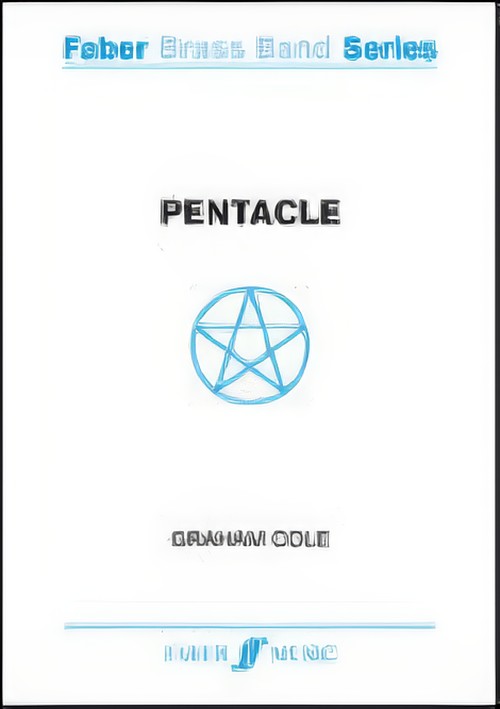Results
-
 £37.95
£37.95MOUNTAIN SONG (Brass Band) - Sparke, Philip
from A Pittsburgh Symphony .Duration: 6:22 Recorded on Polyphonic QPRL081D Cambridge Variations, QPRL045D Making Tracks
Estimated dispatch 7-14 working days
-
 £69.99
£69.99Oldies Forever (Brass Band - Score and Parts)
In the field of popular music the years around the change from the 60's to the 70's saw a wealth of great releases. Many of these hits have been re-released or reworked by artists making them popular today with a new young audience. This new medley presents many hits that would be an attractive concert item in their own right but together they form a musical masterpiece with an almost irresistible appeal on the listener. 05:30
Estimated dispatch 7-14 working days
-
 £85.00
£85.00PENTACLE (Brass Band - Score and Parts) - Cole, Graham
2009 National Championships Area Qualitying Contest - 1st Section.It is a five-movement work, played without a break. The Pentacle is an image of an up-right five-pointed star drawn inside a circle with a single continuous line making the five points equally spaced. Traditionally, each of the five angles has been attributed to the five metaphysical elements of the ancients. These provide the titles for the five sections of he piece: Earth (representing stability and physical endurance), Wind (representing intelligence and the arts), Fire (representing courage and daring), Water (representing emotions and intution) and Quintessence (which represents the All and the Divine spirit).Duration: 13.00
Estimated dispatch 7-14 working days
-
 £30.00
£30.00PENTACLE (Brass Band - Score only) - Cole, Graham
2009 National Championships Area Qualitying Contest - 1st Section.It is a five-movement work, played without a break. The Pentacle is an image of an up-right five-pointed star drawn inside a circle with a single continuous line making the five points equally spaced. Traditionally, each of the five angles has been attributed to the five metaphysical elements of the ancients. These provide the titles for the five sections of he piece: Earth (representing stability and physical endurance), Wind (representing intelligence and the arts), Fire (representing courage and daring), Water (representing emotions and intution) and Quintessence (which represents the All and the Divine spirit).
Estimated dispatch 7-14 working days
-
 £37.95
£37.95POINCIANA (Brass Band) - Farr & Richardson
Recorded on Polyphonic QPRL045D Making Tracks
Estimated dispatch 7-14 working days
-
 £37.95
£37.95RIVER CITY SERENADE (Brass Band) - Sparke, Philip
Duration: 4:42 Recorded on Polyphonic QPRL089D Harmony Music, QPRL045D Making Tracks
Estimated dispatch 7-14 working days
-
 £37.95
£37.95RUSSKY PERCUSSKY (Percussion/Brass Band) - Richards, Goff
Recorded on Polyphonic QPRL045D Making Tracks
Estimated dispatch 7-14 working days
-
 £39.95
£39.95SINGALONGAMAX (Selection No.1) (Brass Band) - Siebert, Edrich
Includes: Who's Sorry Now?; Yes, Sir, That's My Baby; Ma! (He's Making Eyes at Me); Zip-a-Dee-Doo-Dah.
Estimated dispatch 7-14 working days
-
 £72.00
£72.00Stantonbury Festival (Brass Band - Score and Parts) - Steadman-Allen, Ray
A three-movement suite in the composer's approachable style. Though not difficult to play the whole band is fully employed throughout making both rehearsal and performance enjoyable.Suitable for fourth section bands and above.
Estimated dispatch 7-14 working days
-
 £40.00
£40.00Stantonbury Festival (Brass Band - Score only) - Steadman-Allen, Ray
A three-movement suite in the composer's approachable style. Though not difficult to play the whole band is fully employed throughout making both rehearsal and performance enjoyable.Suitable for fourth section bands and above.
Estimated dispatch 7-14 working days
